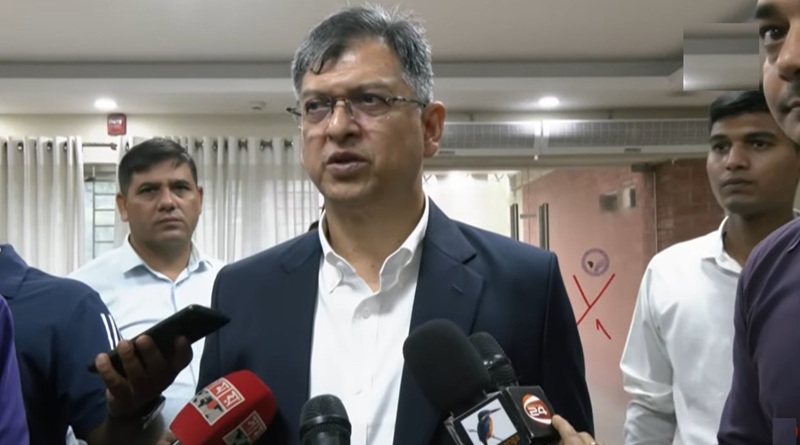The Bangladesh Nationalist Party (BNP) walked out of the National Consensus Commission’s meeting on Monday morning during discussions over the appointment procedures for key constitutional institutions but later rejoined the session.
The walkout took place at the Foreign Service Academy in Dhaka on the 20th day of the Commission’s second phase of political consultations. The BNP leaders left the session at the start of talks concerning appointments
to the Public Service Commission, Anti-Corruption Commission (ACC), Comptroller and Auditor General (CAG), and the office of the Ombudsman.
BNP’s representatives, however, made it clear that they would rejoin discussions on women’s representation in Parliament, scheduled later in the session. The party returned to the meeting after a brief interval, according to Commission officials.
Professor Ali Riaz, Vice-Chairman of the National Consensus Commission, confirmed the BNP’s return and said that discussions would continue on unresolved constitutional issues. He noted that although talks on topics such as balancing the powers of the President have not yet reached finality, significant progress has been made on several key issues.
Riaz also informed that a draft version of the ‘July Charter‘ will be sent to all political parties later in the day. While the draft is yet to be finalised, it will include context, principles, and proposals emerging from the ongoing national dialogue.
Monday’s agenda focused on constitutional provisions for the appointment and accountability of the PSC, ACC, CAG, and Ombudsman, along with deliberations on enhancing women’s political participation.
Earlier on July 23, three political parties, including the Communist Party of Bangladesh (CPB), staged a symbolic walkout from a session held at Milestone School and College in Uttara. That protest came in response to an alleged police assault on students and parents demonstrating over a fatal training aircraft crash. CPB General Secretary Ruhin Hossain Prince announced a 10-minute walkout during that session, supported by Mushtaq Hossain of JASAD and Bazlur Rashid Firoz of BASAD.
The current phase of talks involves 28 political parties and two alliances, including the BNP and Jamaat-e-Islami. Commission members present at the meeting included Soffor Raj Hossain, Badiul Alam Majumdar, Emdadul Haque, Iftekharuzzaman, and Ayyub Mia.
The National Consensus Commission was formed in early July following weeks of mass protests demanding systemic reforms. Initiated by Chief Adviser Muhammad Yunus, the Commission was tasked with building broad-based political agreement on electoral, constitutional, and institutional changes to steer Bangladesh toward credible elections. Since its formation, the Commission has held daily consultations with political parties, civil society, and professional groups to develop what is now known as the July Charter—a roadmap for national consensus and democratic transition.


